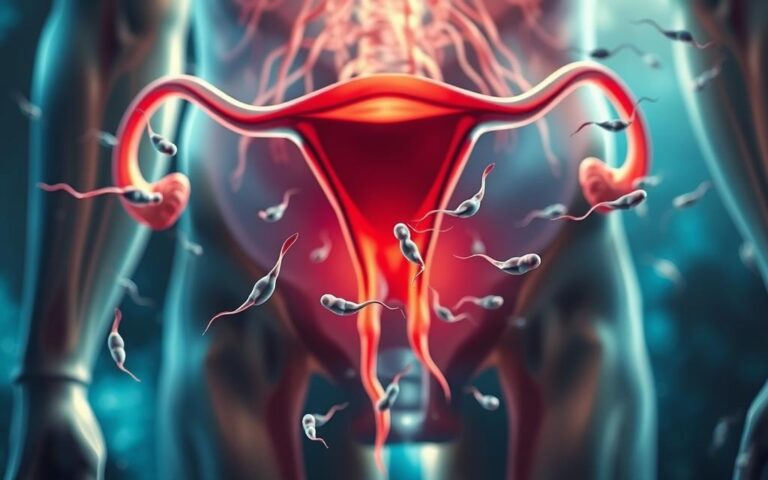Nutrients and Micronutrients to Enhance Male Fertility

Diet to Boost Male Fertility: A Comprehensive Guide
The significance of diet in sperm production is immense. A healthy diet not only provides the necessary nutrients for sperm production but also helps maintain a healthy weight and reduces the risk of diseases that can impair fertility. Certain nutrients, such as antioxidants and essential fatty acids, have been shown to improve sperm quality. Conversely, certain foods and substances should be avoided as they can negatively impact sperm production and overall reproductive health. By making mindful dietary choices, men can actively support their reproductive health and potentially improve their fertility. This article delves into the crucial role of food for men’s fertility.

Image credit: Keiji Yoshiki
How Diet Impacts Spermatozoa Production
A poor diet can lead to obesity and hormonal imbalances, which affect testosterone levels and sperm production. Diets high in processed foods, excess sugar, and trans fats can negatively impact sperm health, leading to decreased sperm count and motility.
The Role of Inflammation
A diet high in processed and fatty foods can cause inflammation in the body, negatively impacting male fertility. Inflammation can damage the cells that produce sperm, leading to a decrease in both quantity and quality. Obesity, often resulting from a poor diet and excess food intake, can decrease testosterone levels and impair the function of reproductive organs. Improving one’s diet and maintaining a healthy weight can reduce inflammation and enhance fertility.
Obesity and Reproductive Health
Excess weight can increase estrogen levels, which decreases sperm count and impairs sperm function. Obesity can also contribute to erectile dysfunction and lower testosterone levels, increasing the risk of conditions like diabetes and high blood pressure, further affecting fertility. Maintaining a healthy weight through a balanced diet and regular exercise is crucial for protecting reproductive health.
Impact of a Father’s Diet on Future Child’s Health
A father’s diet not only impacts his own health but also influences the development of his future child. Poor dietary choices can lead to decreased sperm count and reduced sperm motility, potentially causing fertility issues. A study from McGill University shows that a poor diet in men can increase the risk of genetic abnormalities and birth defects, as well as the likelihood of obesity and chronic diseases in the child later in life. Therefore, prospective fathers should be mindful that their diet significantly impacts the long-term health of their future children.
Key Nutrients and Foods for Healthy Spermatozoa Production
Nuts
A 2018 study found that consuming 60 grams of nuts per day improved sperm quality by 16% and increased sperm mobility by 6% in men aged 18-35. Nuts are rich in zinc, healthy fats, protein, and antioxidants, making them beneficial for overall health and fertility.
Fish
White and fatty fish, such as salmon and tuna, are rich in omega-3 fatty acids, which improve sperm quality and fertility in men. Omega-3s aid in hormone production and reproductive health. These fish are also high in vitamin D, linked to improved sperm motility. Regular consumption of these fish can support fertility and reproductive health.
Zinc
Zinc is essential for healthy spermatozoa, helping maintain normal sperm cell shape and increasing sperm count. Foods rich in zinc include oysters, beef, and pumpkin seeds. Zinc also plays a role in testosterone production and can improve sperm quality and motility.
Iron
Iron is crucial for both male and female fertility. It is necessary for producing sperm and eggs and maintaining reproductive tissue health. Good sources of iron include red meat, poultry, fish, beans, lentils, spinach, and fortified cereals. Combining plant-based iron sources with vitamin C-rich foods can enhance iron absorption.
Vitamin B9 (Folate)
Folate is important for the creation and maturation of sperm. Foods high in folate include leafy greens, beans, nuts, and citrus fruits. Fortified grains also provide folate. A daily folate supplement can help ensure adequate intake for healthy sperm production.
Foods to Avoid for Better Sperm Quality
Avoiding sugar, pesticides, chemicals, and ultra-processed foods is crucial for improving sperm quality. These substances can negatively affect fertility and overall health. Excessive sugar can lead to insulin resistance, poor semen quality, and decreased fertility. Pesticides and chemicals can disrupt hormonal balance, and ultra-processed foods often contain harmful additives and preservatives.
Sugar
Excess sugar can cause insulin resistance, leading to poor semen quality and decreased fertility. High sugar levels can increase reactive oxygen species, damaging sperm DNA. Reducing sugary foods and beverages is important for improving sperm production.
Processed Meat
Processed meats like hot dogs, bacon, and deli meats are linked to lower sperm count and poorer sperm quality due to preservatives and chemicals. These meats are high in saturated fat and associated with increased heart disease risk. Limiting processed meats and focusing on a balanced diet with fruits, vegetables, whole grains, and lean proteins is recommended.
Alcohol
Alcohol can decrease testosterone levels and sperm quality, leading to erectile dysfunction and reduced libido. Reducing or eliminating alcohol intake can significantly improve fertility and conception chances.
RCC Fertility Clinics: Holistic Approach to Boosting Fertility
RCC fertility clinics specialize in helping couples conceive, using a holistic approach that includes nutrition and lifestyle changes. They offer services like in-vitro fertilization (IVF) and intracytoplasmic sperm injection (ICSI) to support couples in their journey to parenthood. For more information, visit RCC and make an appointment today.
Key Insights on Diet and Men’s Fertility
- A poor diet affects the health of both the future father and child, causing issues like obesity and inflammation.
- Processed food, sugar, alcohol, chemicals, and pesticides can lead to fetal abnormalities.
- Essential nutrients for healthy sperm production include zinc, iron, folate, fish, and nuts.
- Reducing sugar, processed meat, alcohol, and ultra-processed foods can improve chances of conception.
- RCC fertility clinics provide holistic treatments and dietary guidance to improve reproductive health.
By adopting a healthy diet and making informed nutritional choices, men can significantly boost their fertility and improve their chances of successful conception.
Read more: 18 Foods To Increase Sperm Count And Quality






